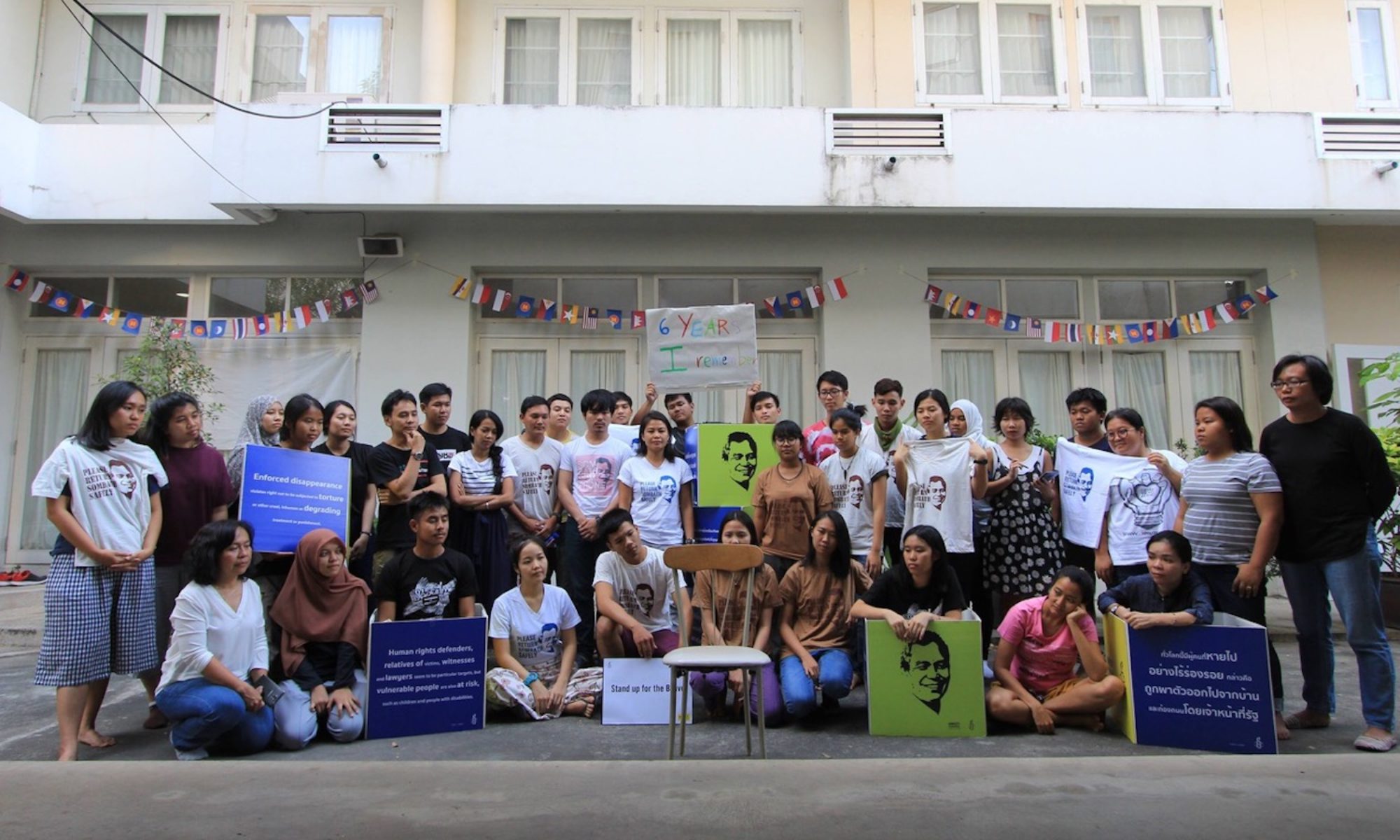Radio Free Asia: 31 August 2015

Human rights groups and the wife of a prominent civil rights leader who disappeared nearly three years ago have called on the Lao government to adequately investigate the incident and provide information about the case’s progress.
Sombath Somphone went missing on Dec. 15, 2012, when police stopped him in his vehicle at a checkpoint in the capital Vientiane. He was transferred to another vehicle, according to police surveillance video, and has not been heard from since.
Although authorities have denied any responsibility, Sombath’s abduction is widely acknowledged to be an enforced disappearance.
On Sunday — the International Day of the Victims of Enforced Disappearances — Sombath’s wife, Ng Shui-Meng, urged Lao authorities to inform her of their progress in the investigation.
“The authorities always say they are investigating, but always without clear answers,” she told RFA’s Lao Service. “I appeal to the government to have pity on my suffering and honestly give me the investigation results.”
She added that governments and state agencies should not commit enforced disappearances.
“It is a crime and a violation of a person’s rights,” she said. Continue reading “Rights Groups, Wife of Missing Lao Activist Renew Calls for Progress in Case”









